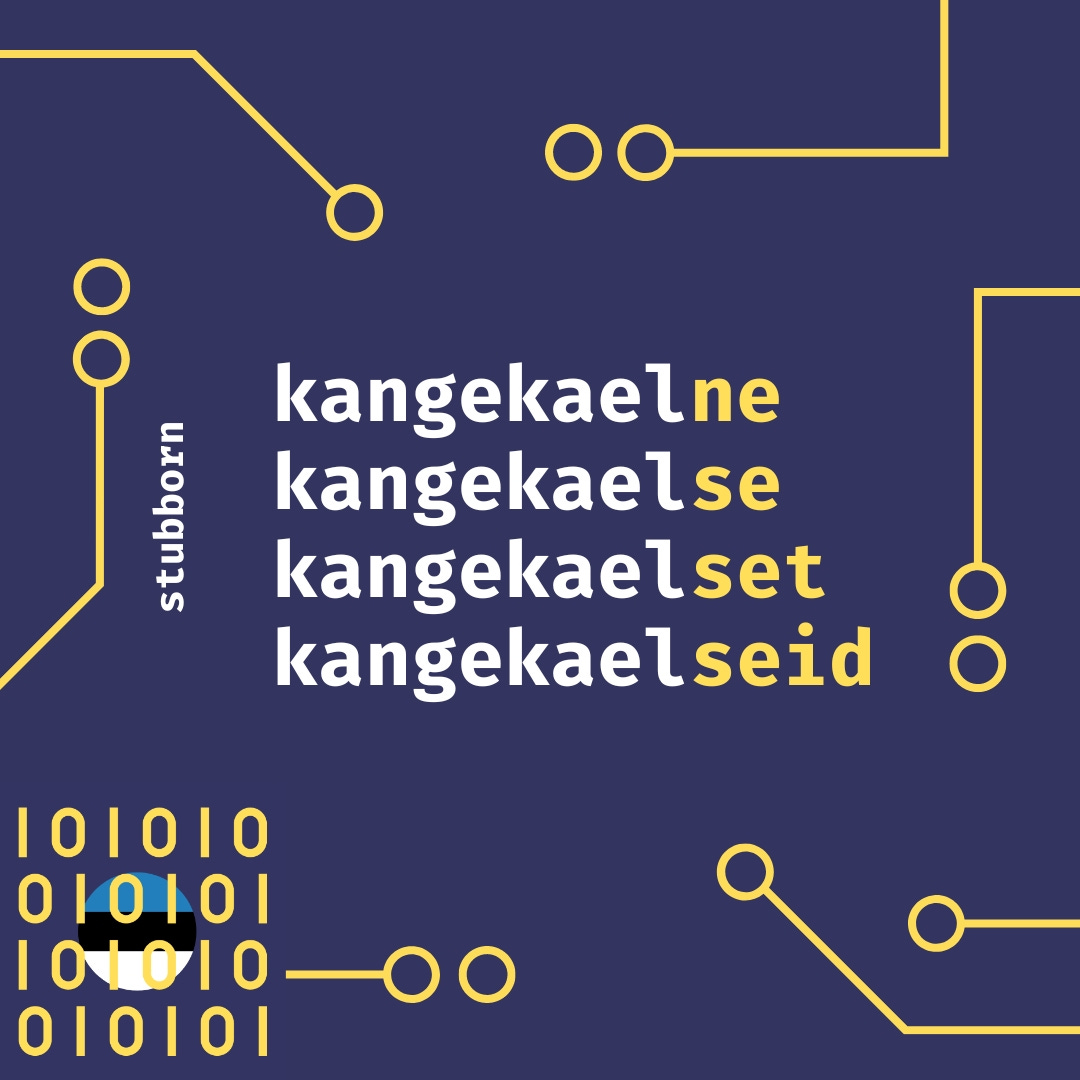Vocab: kangekaelne
stubborn
stubborn, persistent, persistently sticking with something, obstinate
Building blocks
kange- - “stiff”, “strong” or “rigid”
-kael- - “neck”
-ne - an adjective forming ending
So, "kangekaelne" literally translates to "stiff-necked," which conveys the meaning of someone stubborn or obstinate. The literal breakdown gives a vivid image of someone rigid or inflexible in their stance.
The term "kangekaelne" is a loan translation (a calque) from the German word "halsstarrig," which also literally means "stiff-necked"
How to use it:
Here are a few ways the word “kangekaelne” can be used ⬇️
Refusing to Change Opinion:
Poliitik oli kangekaelne ega tahtnud oma seisukohti muuta, kuigi talle esitati veenvaid fakte.
Translation: The politician was stubborn and did not want to change his views, even though he was presented with convincing facts.
Persisting Despite Challenges:
Ma jätkasin kangekaelselt probleemi lahendamist, isegi kui lahenduse leidmine näis võimatu.
Translation: I stubbornly continued solving the problem, even when finding a solution seemed impossible.
Examples
Kohtunik jäi kangekaelselt oma otsuse juurde
Literally: “Judge stuck stubborn-from his decision to”
Idiomatically: “The judge stubbornly stuck to his decision”
Kohtunik - Noun - Nominative Sg, "Judge"
jäi - Verb - 3P Past Sg, "stuck"
kangekaelselt - Adjective - Ablative Sg, "stubbornly"
oma - Pronoun - Genitive Sg, "his"
otsuse - Noun - Genitive Sg, "decision"
juurde - Postposition - Indeclinable, "to"

